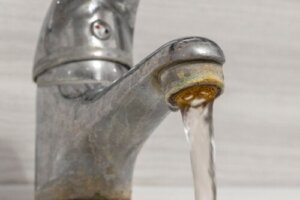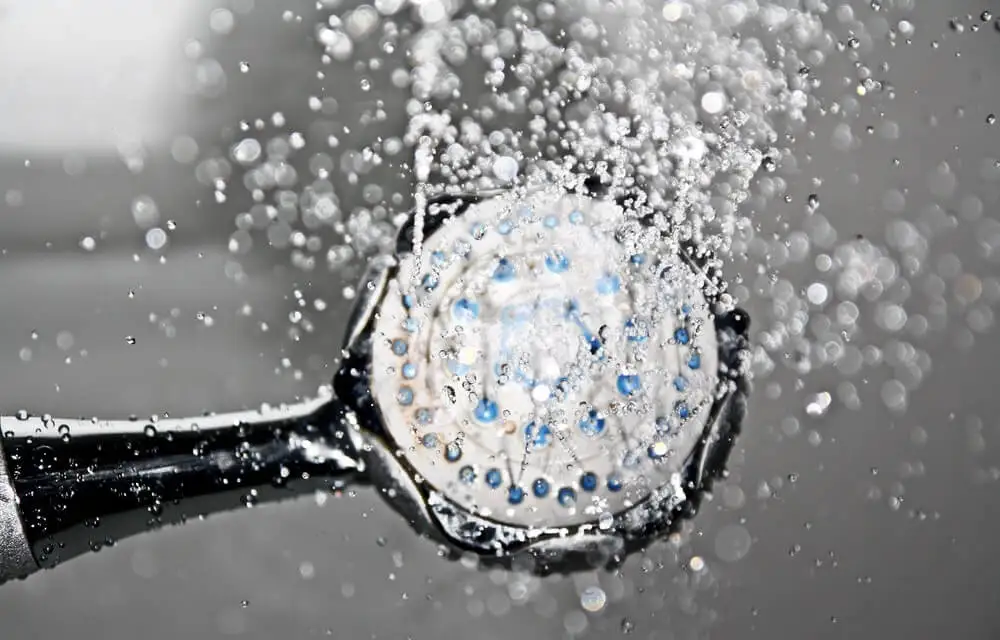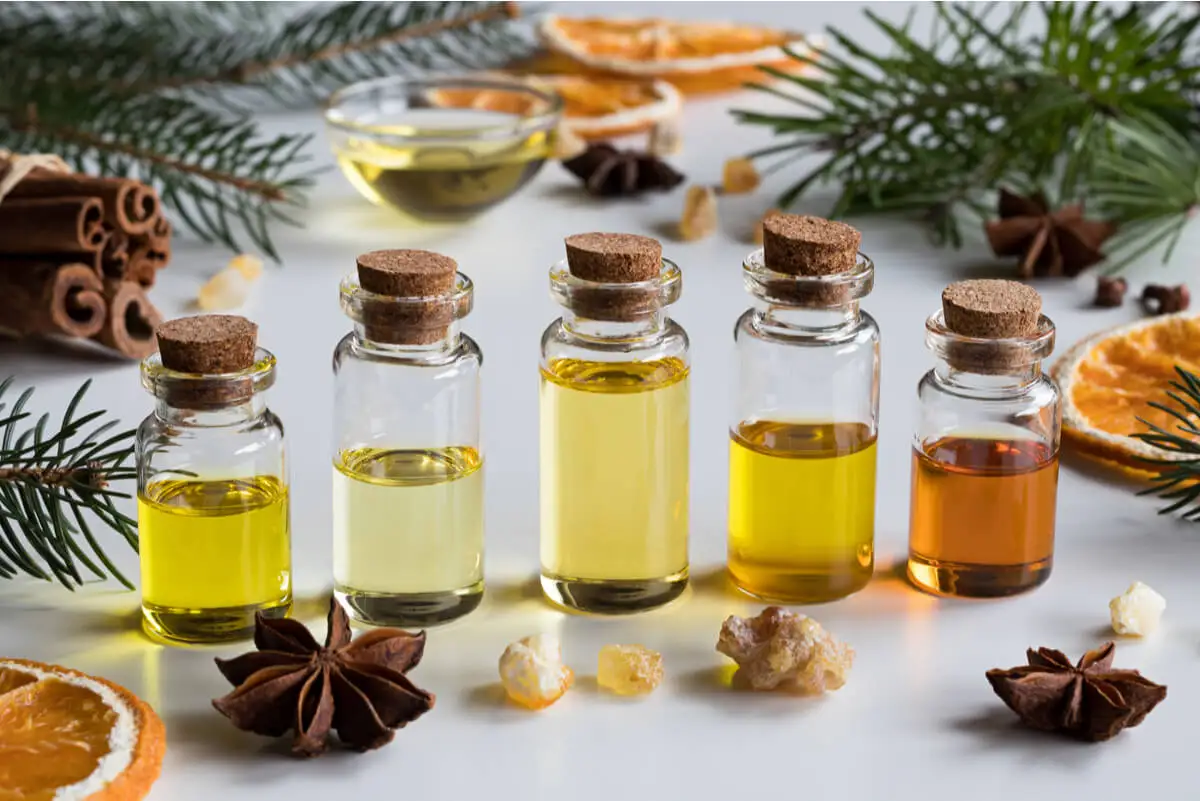What Are Hard Water Stains and How to Remove Them

Although it may seem strange that water can generate stains, it’s also possible that these stains are formed from some chemical elements contained in our products. Knowing what hard water stains are and how to remove them allows you to treat this problem efficiently with both homemade and natural solutions.
Water stains can occur in sprinklers, showers, and on glass once the liquid evaporates. They appear thanks to some minerals and can be removed with different methods, ranging from vinegar to lemon to some more specific cleaning products.
How are hard water stains generated?
Water usually contains minerals such as calcium and magnesium, from which the stains are produced. The process is generated once the liquid evaporates from a surface. Because it has a higher concentration of bicarbonates, it is possible for these types of stains to form, especially if the area is not properly dried.
This type of concentrated water is often used to improve the performance of various household appliances, including clothes and dishwashing machines. However, constant use can cause whitish-colored stains due to the concentration of minerals. These appear on various surfaces, such as faucets, shower screens, porcelain, glass, or shower walls.

5 solutions for removing hard water stains
Although this is not a very serious household problem, the removal of hard water stains can present complications. This depends, among other things, on how long it has been sitting on the glass.
Fortunately, there’s a wide range of natural and chemical products that work to remove these stains. Let’s take a look at what they are.
1. Lemon juice
One of the most natural solutions for treating hard water stains is the application of lemon juice. The citric acid has properties that can soften and remove it. Fir it to be effective, you should squeeze a fresh lemon and mix it with water in a spray bottle. Apply to the stain and let it soak in for a few minutes.
Alternatively, it’s also possible to rub the cut lemon directly on the glass, using gentle and careful movements. Remove the excess liquid with a glass cleaner.
2. Toothpaste
Another household product that’s rarely used for other purposes is toothpaste. However, its properties favor the removal of substances.
It should not be applied directly, but diluted in water to spread it better over the entire area. Pass a brush or sponge gently and then soak with water or with a product for crystals. Make sure it’s thoroughly dry.
3. Remove hard water stains with vinegar
One of the most effective household products against hard water is white vinegar. To use it, it’s necessary to mix it with water in an empty bottle, using the same proportion of each one.
If the stain is resistant, it’s possible to apply 60% vinegar and 40% water in the mixture. A sprayer is recommended to apply on the dirty space of the glass.
Let it soak in well in the area of the stain and repeat the action 2 or 3 times. In turn, moisten a cloth with the mixture and wipe it over the window or glass structure where the hard water is.
Rub carefully and gently to avoid damaging the material. Let the product work on the stain for a while.
Once the sprayed area is dry, wipe it with a squeegee or absorbent paper to remove the remains of the product. It’s important that no vinegar or water is left on the glass, since this can generate new stains. As for the type of product, the most recommended is common distilled white vinegar.
We think you may also enjoy reading this article: How to Remove Mineral Deposits from Your Bathroom Naturally
4. Baking soda
A product with multifunctional characteristics is baking soda. Make a preparation of it with vinegar, always with the precaution of doing it in an open container and in an aerated space. Once the bubbling stops, place the mixture in the glass and let it rest.
Pass a brush or a cloth over it and remove the remains with a little water. It’s a good idea to wet the area of the stain beforehand so that the baking soda adheres better to the surface.
5. Essential oils
Other citrus derivatives are orange or lemon essential oils. These have health benefits and are also used in cleaning. With regard to hard water stains, they can be effective in both removing them and preventing them from re-forming.
Mix drops of oil with water and apply to the stain with a cloth or sponge. As in the previous steps, let it sit for a few minutes and then remove the remains with a glass cleaner.

Like this article? You may also like to read: Four Solutions to Get Rid of Mold in Your Bathroom
Tips for treating and preventing the formation of hard water stains
As with other household problems, it’s important to apply certain prevention tips to prevent any problems from becoming more difficult to resolve. To do this, follow the suggestions below:
- Act fast. It will be easier to remove if a water stain is tackled when it first forms. Check windows and glass at least once a week to identify any stains.
- Abrasive rags. Products can be applied with an abrasive pad for some hard-to-remove water stains. They work like fine sandpaper. Examples include green sponges, magic erasers, and steel wool.
- Prevention. The best way to deal with this problem is to avoid it. To prevent hard water spots from forming, keep windows and glass dry. Check that water and cleaning products evaporate when they are applied.
- Regulate the intensity of the method. The solution to remove hard water stains depends on the resistance they offer. Start with natural products and, in case they don’t yield any results, then turn to chemicals and abrasive rags.
- Prevent corrosion. It’s important not to be confused with products that can be corrosive to the crystals.
- Taps and other surfaces. These stains are not only formed on glass and crystals, but also on faucets and taps. In this case, apply the products and let them stand for 1 or 2 hours before removing them and wiping with a cloth.
- Be careful with tiles. As for wall tiles, it is advisable to clean the stains with natural products, such as lemon or white vinegar.
For stubborn hard water stains, use chemical products
If the most natural solutions were not positive, some cleaning products on the market are effective against hard water stains. However, they do involve an extra investment, as they are chemicals made for that specific purpose.
As for their application, read the manufacturer’s instructions carefully. This is because some can be sprayed on, some can be wiped on, and some can be left on for more or less time. Finally, make sure to use protective equipment when you work with them, including goggles and gloves.
All cited sources were thoroughly reviewed by our team to ensure their quality, reliability, currency, and validity. The bibliography of this article was considered reliable and of academic or scientific accuracy.
- Julián-Soto, F., La dureza del agua como indicador básico de la presencia de incrustaciones en instalaciones domésticas sanitarias. Ingeniería. Investigación y Tecnología [Internet]. 2010;XI(2):167-177. Recuperado de: https://www.redalyc.org/articulo.oa?id=40412515004
- Perez, Esteve, Cristina Barrera, and Luisa Castelló. “Productos Químicos Para La Limpieza En La Industria.” Upv (2017): 2–8. Disponible en: https://riunet.upv.es/handle/10251/83384
- Marrero-Águila, Rigoberto, Zelaya-Reina, Arturo Ramón, Evaluación de problemas de corrosión en tuberías de una central hidroeléctrica. Tecnología Química [Internet]. 2014;XXXIV(1):5-12. Recuperado de: https://www.redalyc.org/articulo.oa?id=445543781001
- Campos-Cruañes, Joan Baptista, Pac-Sa, Mª Rosario, Villamarín-Vázquez, Jose Luis, Bellido-Blasco, Juan, Puig-Barbera, Joan, Felis-Dauder, Carlos, Arnedo-Pena, Alberto, Artero-Civera, Adrián, Dureza del agua de consumo doméstico y prevalencia de eczema atópico en escolares de Castellón, España. Salud Pública de México [Internet]. 2007;49(4):295-301. Recuperado de: https://www.redalyc.org/articulo.oa?id=10648195007
This text is provided for informational purposes only and does not replace consultation with a professional. If in doubt, consult your specialist.








